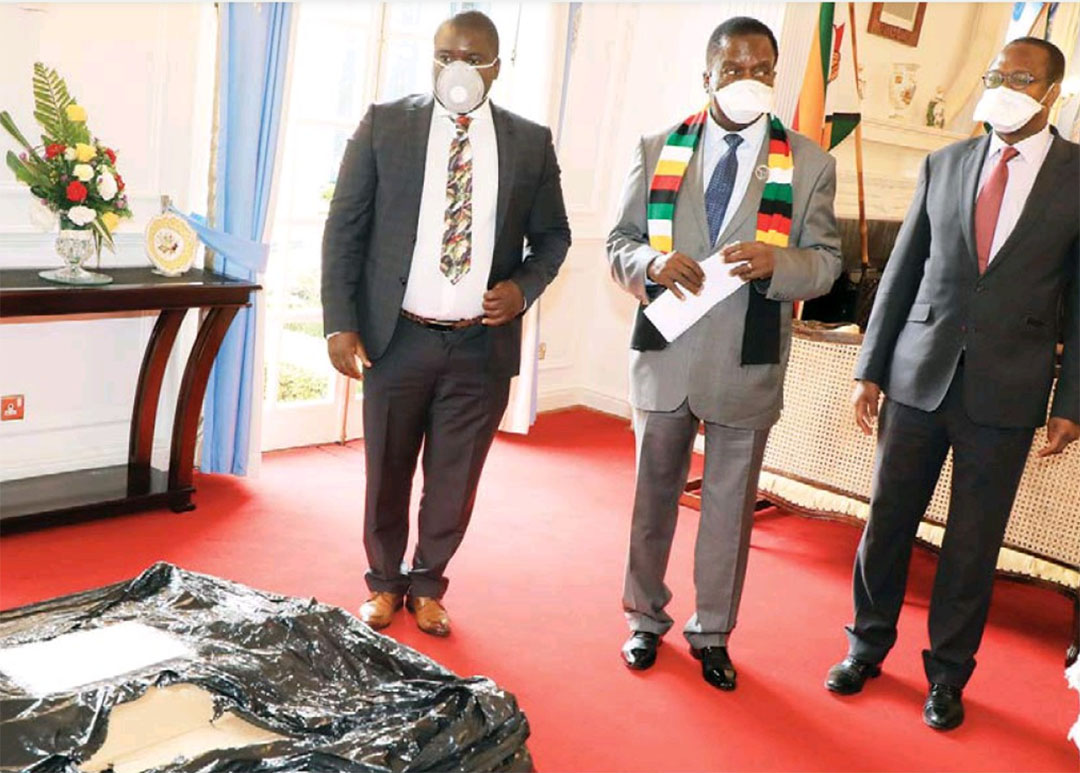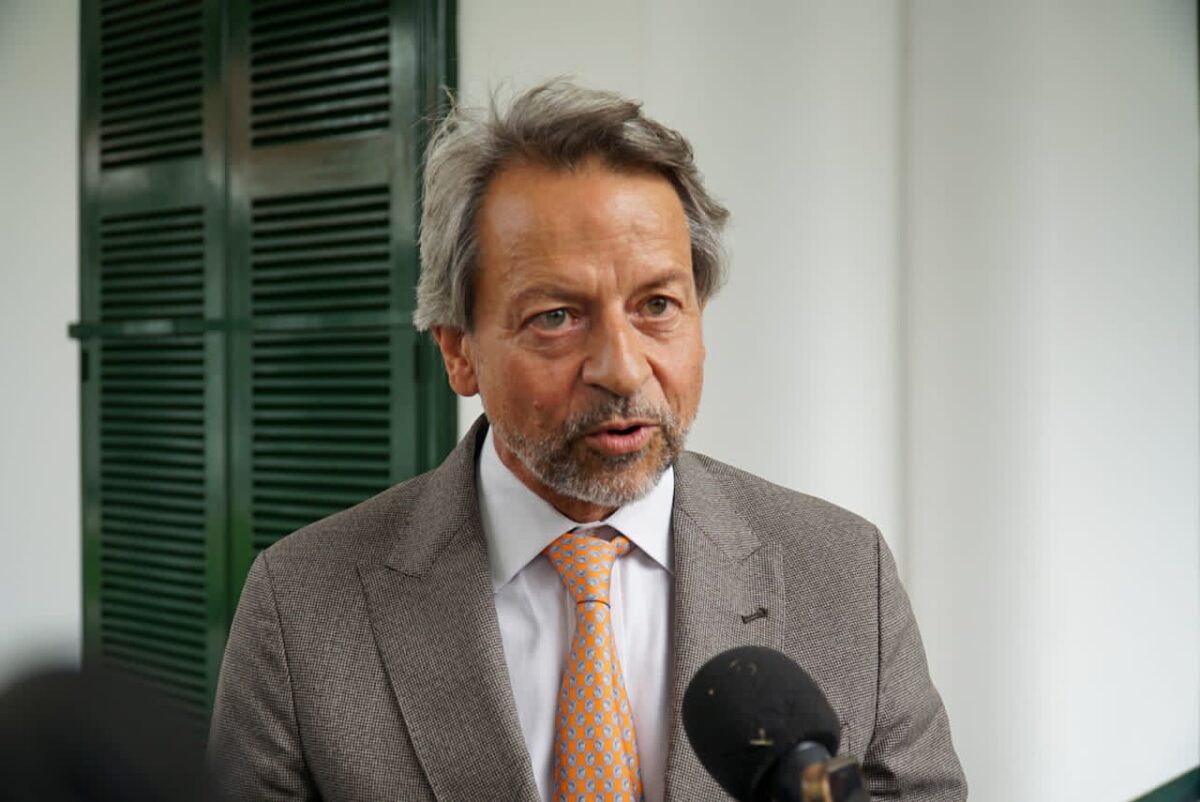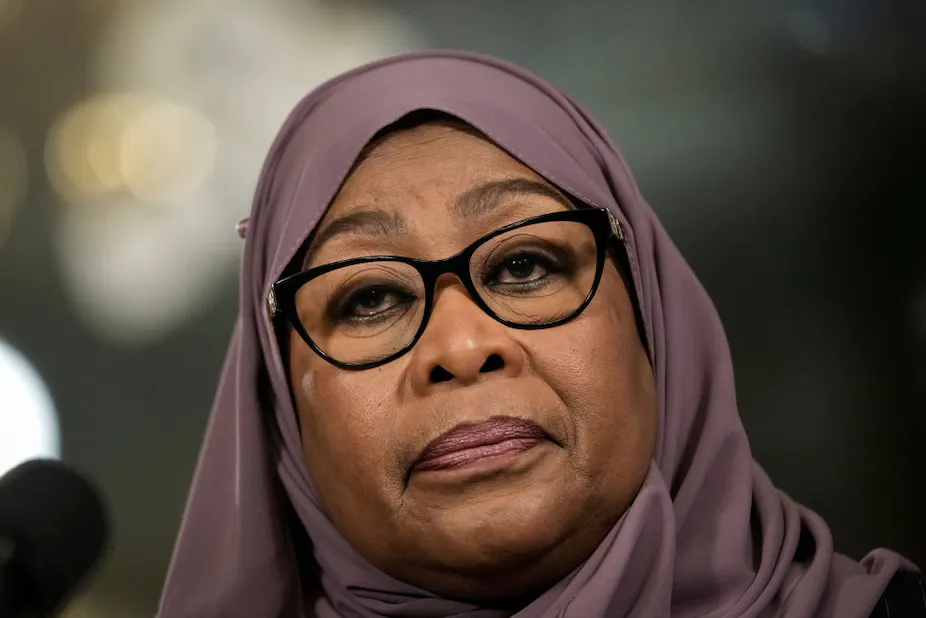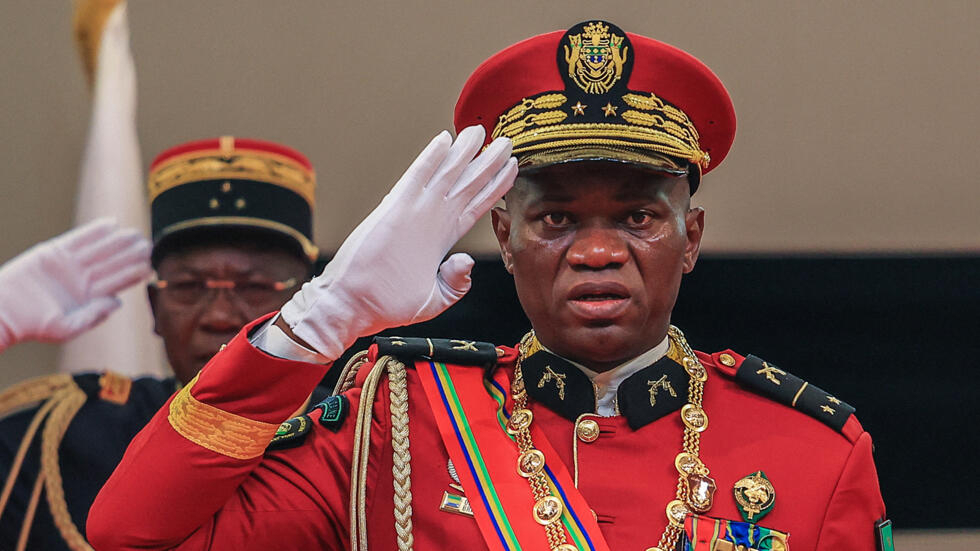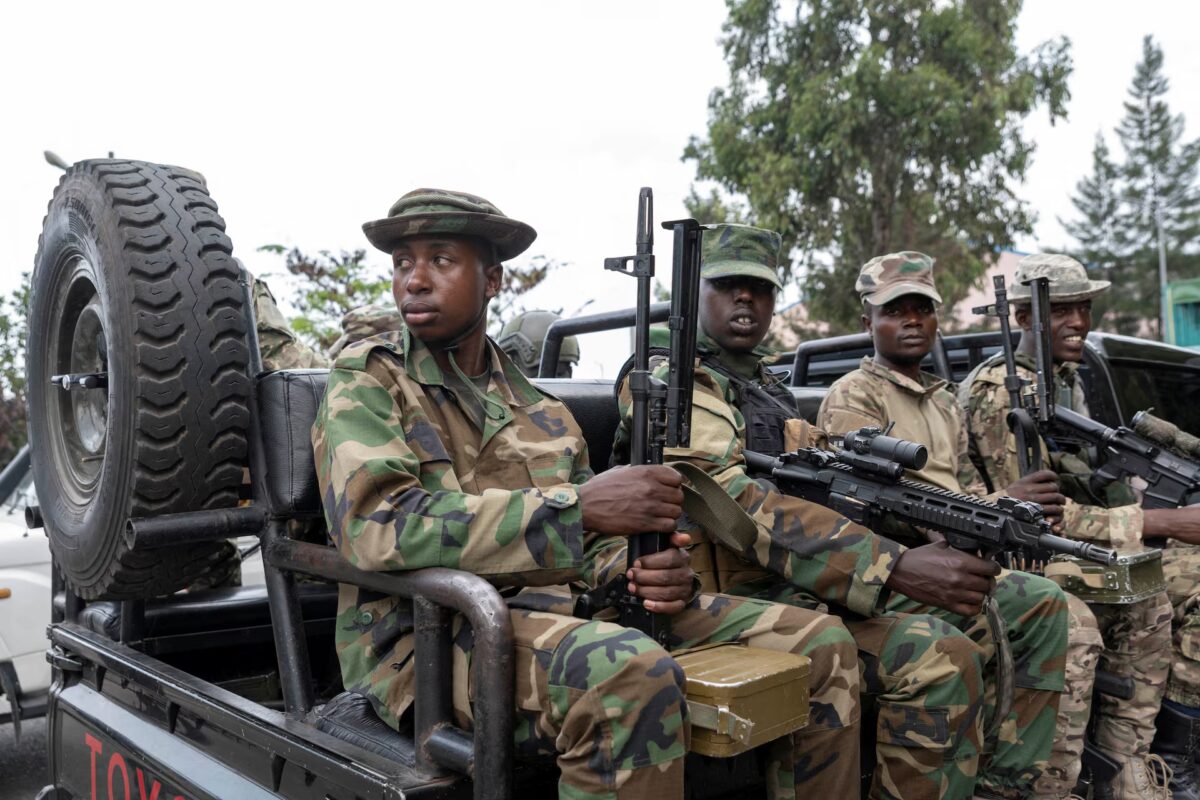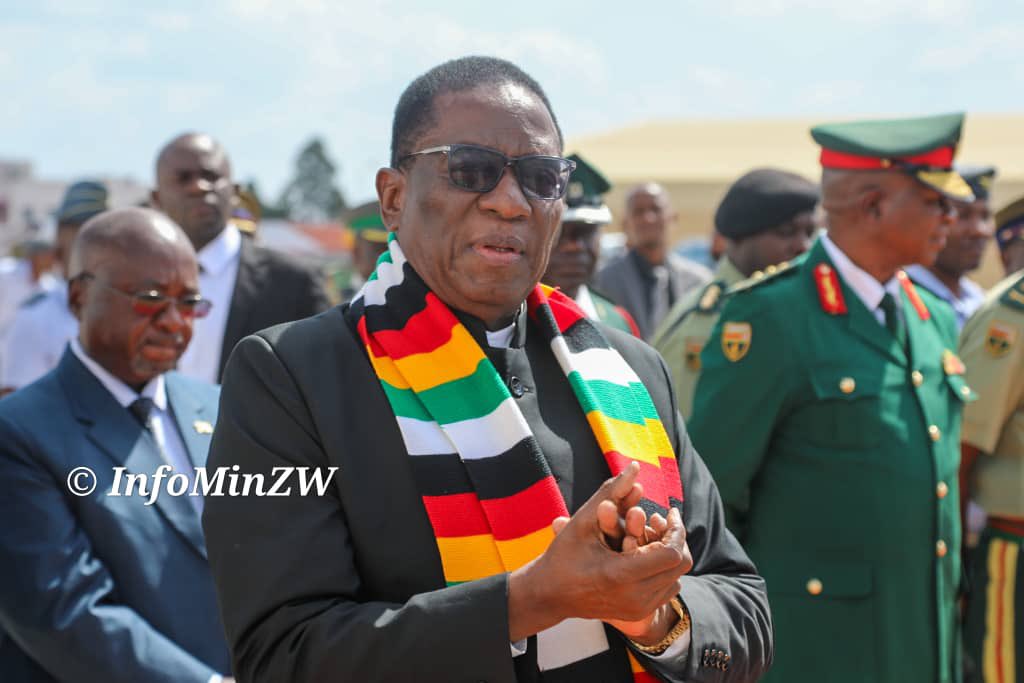HARARE – The Zimbabwe government is funneling US$60 million to a company linked to President Emmerson Mnangagwa’s son, Collins, in a murky coronavirus drugs deal, ZimLive has learnt.
A little-known company called Drax Consult SAGL, which is registered in international tax haven, Switzerland, and represented in Zimbabwe by Delish Nguwaya, has been supplying drugs to the NatPharm, the government drugs firm, in a separate US$22.5 million arrangement since September last year.
Nguwaya, a business partner of Mnangagwa’s son, Collins, has a colourful criminal past – including multiple arrests for armed robbery, cocaine possession and extortion.
Nguwaya on April 8 appeared at a State House event with Mnangagwa, where he donated drugs worth US$200,000 in response to government appeals following the coronavirus outbreak.
At the event, Nguwaya announced a “US$60 million drug supply deal” with the government through NatPharm, according to the state news agency, Ziana.
ZimLive has established that Nguwaya and his associates were already supplying NatPharm with drugs since last year.
In January this year, the finance ministry’s permanent secretary George Guvamatanga said Drax had delivered drugs worth US$2.5 million, and they were in talks to supply more drugs and equipment to the tune of US$20 million.
Discussing that arrangement, Guvamatanga said: “The new dispensation (Mnangagwa regime) is comprised of people with commercial experience who have the ability to structure deals with foreign investors. This will allow certain products or services to come into the country on certain terms.”
Our investigations show that Drax Consult SAGL is one of 30 suppliers of “pharmaceuticals (a) medical drugs, supplies and consumables” approved by the Procurement Regulatory Authority of Zimbabwe (PRAZ), but we have found no evidence that their supply deal with NatPharm went to tender.
The list of approved companies, updated every three months, was published in a government gazette in October 2019. Companies should still bid for public tenders, however, and win the specified tender before they supply the government.
The new US$60 million arrangement to bring in coronavirus medical supplies announced by Nguwaya in his State House meeting with Mnangagwa also does not appear to have been put to tender, as legally required.
Health minister Obadiah Moyo declined to answer our questions on their dealings with Drax Consult SAGL, and specifically whether President Mnangagwa was milking coronavirus funds through his son. Nguwaya denied his deals with the government were corrupt.
“This is the work of my enemies. They see you succeed, and they want to bring you down. My dealings with NatPharm are above board,” Nguwaya insisted, adding that his company was in fact loaning money to NatPharm which has no foreign currency to acquire critical drugs.
He said the loan scheme to supply NatPharm with drugs was approved in September last year. When our correspondent asked to see the documents, he referred him to PRAZ, whose offices are closed during the current coronavirus lockdown.
Nguwaya described Collins Mnangagwa as his “brother”, adding: “I’ve known him for a long time.” He denied they were business partners, although our sources maintain they are both involved in murky deals with government departments, including getting paid millions of dollars to import grain.
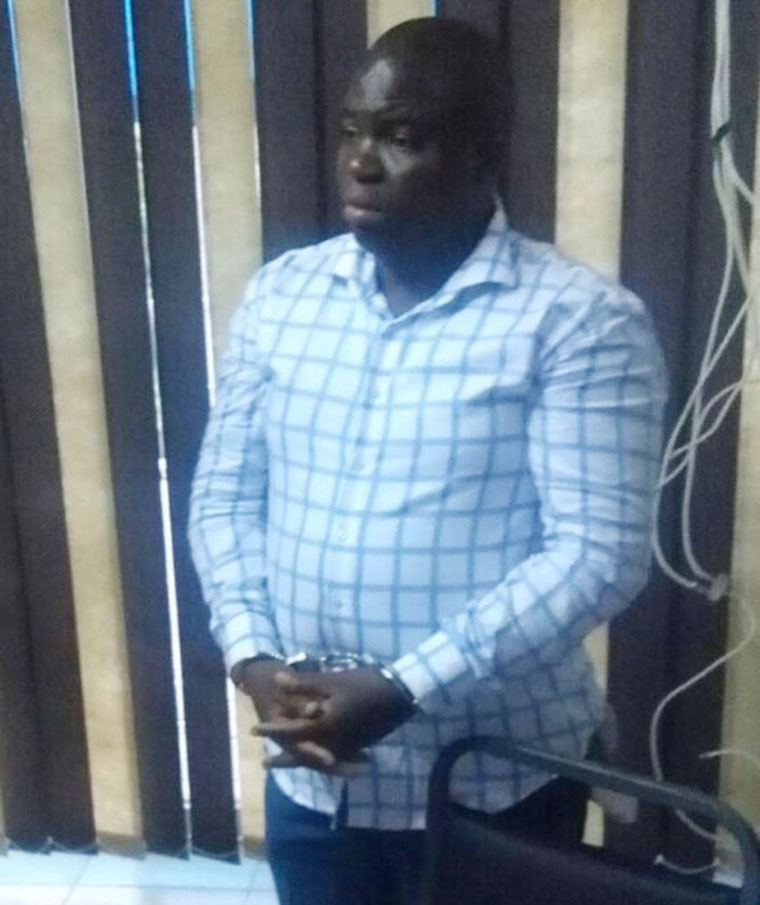
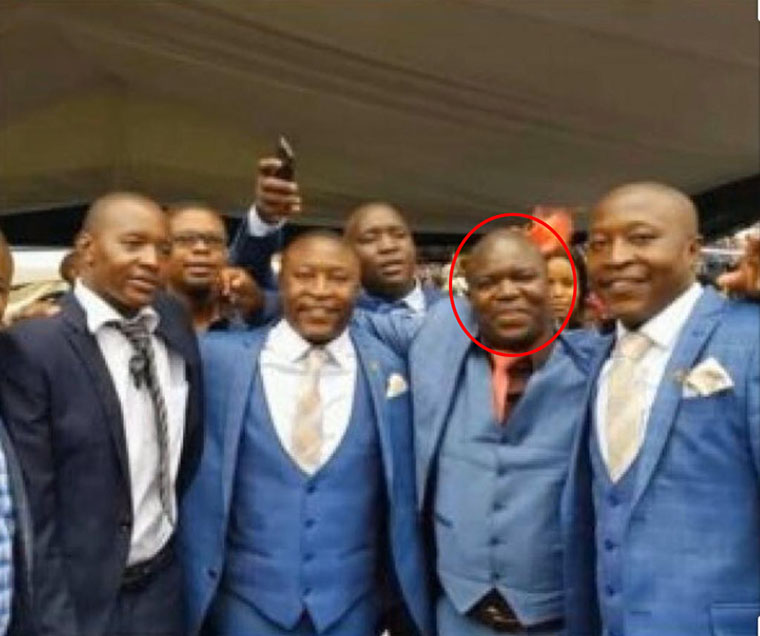
Over the last decade, Nguwaya has been in and out of court facing a string of criminal charges. He says he has been cleaning up his act by becoming a regular businessman.
Earlier this month, Johannesburg-based business tycoon Frank Buyanga accused Nguwaya of making at least 15 calls to Justice Jacob Manzunzu of the Harare High Court in a bid to influence the outcome of a civil case that was before the judge.
Justice Manzunzu last week found against Buyanga in his child custody battle with his ex-girlfriend, Chantelle Muteswa. The judge ordered Buyanga to return his five-year-old son to Muteswa, but his lawyers – who say the judge should have recused himself – have appealed.
“I have only read those accusations in the newspapers,” Nguwaya said. “I have never met Justice Manzunzu. I have never spoken to Justice Manzunzu.”
Nguwaya, styling himself as a police officer and a sometimes informer for Zimbabwe’s intelligence services, has landed in court over half a dozen times accused of a range of criminal activities.
Arriving in Harare from Gokwe where he grew up, he is known to have enlisted for the police constabulary and was attached to Mabelreign police post.
His criminal instincts soon took over, however. In July 2012, a couple were driving on the Harare-Bulawayo Road and at a traffic-controlled intersection at the Warren Park offramp, Nguwaya allegedly pulled up next to them in his BMW.
A court heard he accused the man who was driving with his wife of side-swiping his car before moving to block the road with his vehicle. Shortly after, a police officer from Mabelreign arrived at the scene and parked behind the terrified couple’s vehicle, boxing them in.
Nguwaya and his police colleague were alleged to have snatched a handbag containing US$2,500 and valuables worth US$255 at gunpoint before jumping into their vehicles and driving off at speed towards Kuwadzana. The couple later withdrew the charges, allegedly after receiving threats.
In April 2013, Nguwaya was charged alongside two police officers and another man accused of extorting US$6,000 from Valley Fresh Shop in Strathaven, Harare.
Posing as detectives from the Criminal Investigations Department, they had accused the company of smuggling a truckload of fruits and vegetables from South Africa and demanded to be paid to call off the investigation.
Four years later, in March 2017, he was prosecuted for extortion, possession of cocaine and contravening the Medicines and Allied Substances Control Act after being found in possession of a prescription drug, sildenafil, which is sold under the brand name Viagra.
Nguwaya had extorted US$15,000 from one Bruce Michael Blake, who was forced to part with the money after Nguwaya told him he was under investigation for spying, while promising he could make the charges go away.
In June 2017, he admitted conspiring with three Central Intelligence Organisation agents and a police officer to extort US$20,000 from Baoning Guo, a Chinese national.

